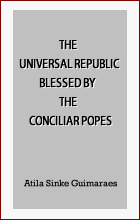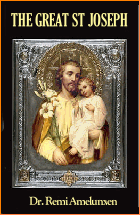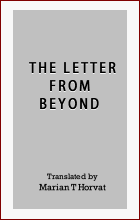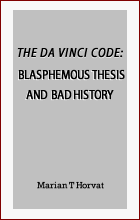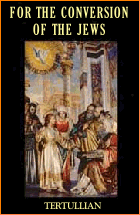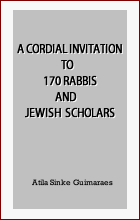What People are Commenting
Good History Books
History from a Counter-Revolutionary Perspective
Dear TIA,
Last week you posted a book review of United States History - A Traditional Catholic Perspective. I wonder whether your writers can recommend any other history books about other countries. I am interested in learning more about history, but would like to avoid the errors and modern ideologies that often make their way into such books. I would prefer recommendations that are not textbooks if possible.
Thank you for the excellent work you do.
Regards,
A.L.
TIA responds:
Dear A.L.,
We are pleased to hear that you would like to study History from a Catholic perspective, and profited from our review on the recent work United States History from a Traditional Catholic Perspective. Unfortunately, we have not been able to find other history books written more recently that are not tainted with modern errors or present a dry positivist history, but we are continually searching for such books. We invite our readers to share their discoveries with us, or send us such books to review.
Dr. Horvat has answered a question on medieval history books here and on general history books here. Her few recommendations come with caveats. For example, Christ the King: Lord of History is acceptable but somewhat dry, and does not give due emphasis to the fight in History,
A good history series on the War of the North and the South, which defends the South, is by Adam S. Miller. The five volumes were reviewed by TIA in the following articles:
• Ecclesiastical History of the English People by St. Bede;
• A Compendium of Italian History from the Fall of the Roman Empire by St. John Bosco.
When studying History, it is also good to read the original sources such as letters, autobiographies and diaries. These will not be filled with modern ideologies, though the people themselves may have wrong ideas. A few such sources that we can recommend are the following:
For this reason we recommend you to read the commentaries of Prof. Plinio Corrêa de Oliveira in The Saint of the Day page on our website. Prof. Plinio does not just describe the virtues and piety of the Saint, but also places them in the context of their times, showing their counter-revolutionary spirit and how they fought the heresies, errors and obstacles that faced them.
His book Revolution and Counter-Revolution is a landmark work that offers criteria to understand History from the perspective of this fight; it is something every member of the Church Militant needs to have. It is that same fight described so brilliantly by St. Augustine in The City of God, whose theme is the perpetual and irreconcilable fight that takes places between the two cities in History - the City of God and the City of Devil.
Prof. Plinio likewise conceives all History as a battle between the Catholic Church and Power of Darkness. The fight led by the Devil is the Revolution, which aimed to destroy medieval Christendom and replace it with a new secular and pagan order; the fight led by God and Our Lady to restore and rebuild Catholic Civilization is the Counter-Revolution Therefore, we highly recommend this work - as well as summary articles on our site (here and here) - as a foundation for the study of History. We would also suggest this article on Counter-Revolution from the Fatima Perspective and articles on this page to understand how the Revolution entered the Church.
Although not truly a book on history, The Liturgical Year by Dom Prosper Guéranger will also help you to understand the Saints in relation to their times. Dom Guéranger gives detailed descriptions of the Saints and includes historical facts and information on the development of the Liturgy throughout all the volumes of the set. He is very counter-revolutionary in his thinking and will give you a solid basis for refuting modern myths.
We hope this is of some help to you.
Cordially,
TIA correspondence desk
Last week you posted a book review of United States History - A Traditional Catholic Perspective. I wonder whether your writers can recommend any other history books about other countries. I am interested in learning more about history, but would like to avoid the errors and modern ideologies that often make their way into such books. I would prefer recommendations that are not textbooks if possible.
Thank you for the excellent work you do.
Regards,
A.L.
______________________
TIA responds:
Dear A.L.,
We are pleased to hear that you would like to study History from a Catholic perspective, and profited from our review on the recent work United States History from a Traditional Catholic Perspective. Unfortunately, we have not been able to find other history books written more recently that are not tainted with modern errors or present a dry positivist history, but we are continually searching for such books. We invite our readers to share their discoveries with us, or send us such books to review.
Dr. Horvat has answered a question on medieval history books here and on general history books here. Her few recommendations come with caveats. For example, Christ the King: Lord of History is acceptable but somewhat dry, and does not give due emphasis to the fight in History,
A good history series on the War of the North and the South, which defends the South, is by Adam S. Miller. The five volumes were reviewed by TIA in the following articles:
- The North & The South and Secession: An Examination of Cause and Right, Book I;
- The North, The South & Slavery, Book II;
- The North, the South and Lincoln’s War Policies, Book III.
• Ecclesiastical History of the English People by St. Bede;
• A Compendium of Italian History from the Fall of the Roman Empire by St. John Bosco.
When studying History, it is also good to read the original sources such as letters, autobiographies and diaries. These will not be filled with modern ideologies, though the people themselves may have wrong ideas. A few such sources that we can recommend are the following:
- The Travels of Marco Polo by Marco Polo;
- Life of Charlemagne by Einhard;
- The Voyage of St. Brendan the Navigator - a saga in Latin that has been translated into English by many writers;
- The Journal of Christopher Columbus;
- A Family of Brigands in 1793 by Marie de Sainte-Hermine;
- Trianon, A Novel of Royal France by Elena Maria Vidal;
- Holding the Stirrup by Baroness Elisabeth von Guttenberg.
- El Cid God’s Own Champion by James Fitzhenry;
- Life of St. Margaret, Queen of Scotland by Bishop Turgot of Durham;
- The Life of the Princess Margaret, Queen of Scotland by Samuel Cowan J.P.;
- The Life of the Very Noble King of Castile and Leon, St Ferdinand III by C. Fernandez de Castro (which includes the early History of England and Scotland).
- The Land of Prester John: A Chronicle of Portuguese Exploration (Byways of History);
- Henry the Navigator;
- Good Hope: The Voyage of Vasco da Gama;
- Captains of Brazil.
- Gabriel Garcia Moreno, Regenerator of Ecuador by Mary Monica Maxwell-Scott;
- Garcia Moreno by Rev. Fr. Augustine Berthe.
- With Fire and Sword, The Deluge and Pan Michael by Henryk Sienkiewica.
- A work that explains how Vietnam Catholic President Diem was betrayed by America is The Lost Mandate of Heaven by Geoffrey Shaw.
- Another book that shows how Communism did not die with the fall of the Iron Curtain is Lies, Terror and the Rise of the Neo-Communist Empire - Origins and Direction by Toby Westerman.
For this reason we recommend you to read the commentaries of Prof. Plinio Corrêa de Oliveira in The Saint of the Day page on our website. Prof. Plinio does not just describe the virtues and piety of the Saint, but also places them in the context of their times, showing their counter-revolutionary spirit and how they fought the heresies, errors and obstacles that faced them.
His book Revolution and Counter-Revolution is a landmark work that offers criteria to understand History from the perspective of this fight; it is something every member of the Church Militant needs to have. It is that same fight described so brilliantly by St. Augustine in The City of God, whose theme is the perpetual and irreconcilable fight that takes places between the two cities in History - the City of God and the City of Devil.
Prof. Plinio likewise conceives all History as a battle between the Catholic Church and Power of Darkness. The fight led by the Devil is the Revolution, which aimed to destroy medieval Christendom and replace it with a new secular and pagan order; the fight led by God and Our Lady to restore and rebuild Catholic Civilization is the Counter-Revolution Therefore, we highly recommend this work - as well as summary articles on our site (here and here) - as a foundation for the study of History. We would also suggest this article on Counter-Revolution from the Fatima Perspective and articles on this page to understand how the Revolution entered the Church.
Although not truly a book on history, The Liturgical Year by Dom Prosper Guéranger will also help you to understand the Saints in relation to their times. Dom Guéranger gives detailed descriptions of the Saints and includes historical facts and information on the development of the Liturgy throughout all the volumes of the set. He is very counter-revolutionary in his thinking and will give you a solid basis for refuting modern myths.
We hope this is of some help to you.
Cordially,
TIA correspondence desk

Posted February 22, 2022
______________________
The opinions expressed in this section - What People Are Commenting - do not necessarily express those of TIA
______________________
______________________












